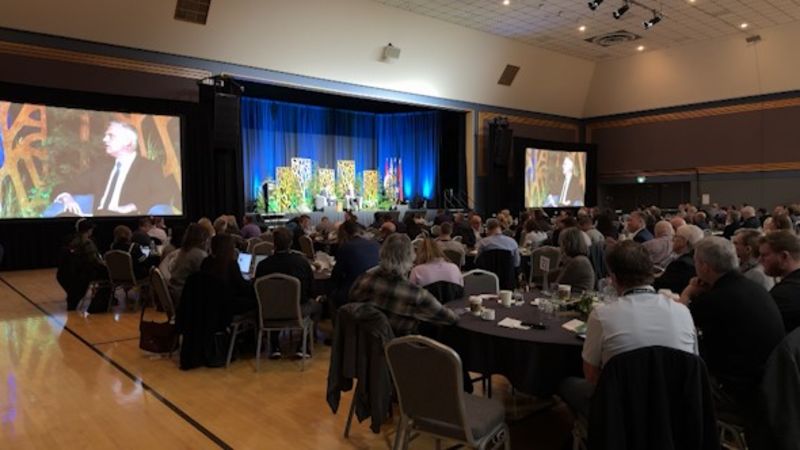
COFI Convention kicks off
PRINCE GEORGE – Forty-five million cubic metres. That was the number thrown around liberally on Day One of the Council of Forest Industries convention. That’s the figure the government has earmarked as the Province’s annual allowable cut. But harvesting has not achieved nearly that ceiling. And for a reason.
“There’s a lot more potential for us out there to harvest,” says Russ Taylor, President of Russ Taylor Global. “But because of government policy, old growth policy, First Nations policy, caribou protection, landscape planning, 30-by-30 initiatives, and many, many others, the government’s own numbers are suggesting the harvest will be 30 million in 2026, 2027 because their policies are going to take away more timber.”
